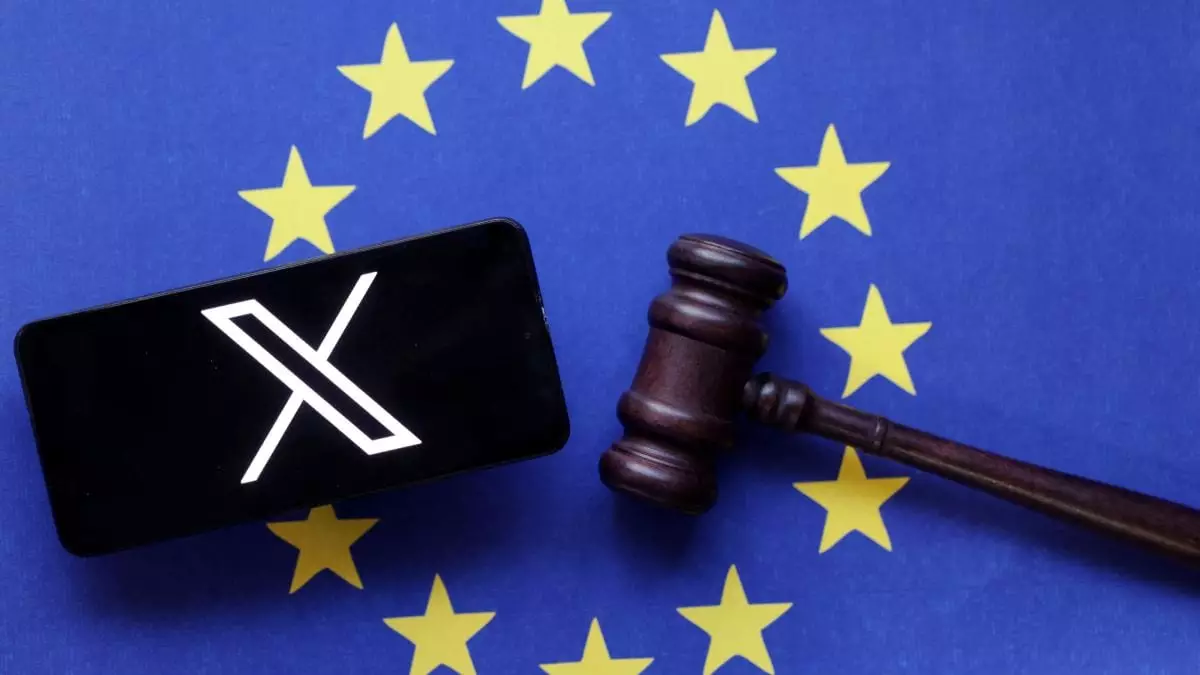The European Union (EU) has taken a significant step in scrutinizing Elon Musk’s social media platform, X, previously known as Twitter, to determine whether it is violating crucial content moderation regulations. This arises from the ongoing discourse surrounding the platform’s responsibilities under the EU’s Digital Services Act (DSA), which aims to promote safer online environments by holding large tech companies accountable for the content on their platforms. With mounts of political implications and social responsibilities at play, this investigation may serve as a pivotal moment in regulating how tech giants operate within Europe.
The impetus for this investigation can be traced back to formal proceedings initiated in December 2023, with the EU accusing X of not effectively countering illegal content and disinformation. The charges include the platform’s alleged non-compliance with transparency obligations and the use of deceptive design practices. EU officials have expressed concern about the decentralized nature of misinformation and the potential threats posed to democratic processes, particularly in light of recent elections in various EU member states.
The ongoing political landscape has further complicated X’s situation. Musk’s recent endorsements of far-right figures, notably Alice Weidel, a candidate from Germany’s Alternative for Germany party, has raised eyebrows. Such endorsements not only amplify the political stakes but also raise questions about the platform’s role in promoting specific political narratives, which could violate the fairness provisions embedded in the DSA.
The Role of Political Dynamics
Musk’s political affiliations and active engagement on his platform have triggered a heightened sense of urgency regarding the integrity of democratic processes. The concern escalated after a live-streamed conversation between Musk and Weidel, which some analysts argue provided undue advantage to a political candidate. Such actions prompted the EU to deepen its investigation, underscoring the necessity for tech platforms to remain neutral and to act responsibly, especially in politically sensitive times.
Moreover, the fallout from allegations of foreign interference in electoral outcomes—such as the overturning of Romania’s presidential election amid Russian meddling—has fueled the EU’s determination to establish stringent guidelines and enforce repercussions for violations. A gap in governance amongst large digital platforms could pose severe risks to democratic integrity, as evidenced by these worrying trends.
The stakes are incredibly high for X, as breaches of the DSA could lead to substantial fines, potentially reaching up to six percent of the company’s annual global revenue. This looming threat not only affects Musk’s platform, but also serves as a broader cautionary tale that resonates across other digital giants regarding the consequences of non-compliance in Europe.
The scrutiny faced by X is part of a larger narrative that illustrates the EU’s commitment to regulating digital platforms and countering their influence on democracy. However, the impending inauguration of Donald Trump as U.S. president complicates matters further. With Trump entering the office amidst a slew of lobbying from Big Tech executives, there are concerns about potential pushback against EU regulations, as these leaders seek to defend their interests across the Atlantic.
Musk has been vocally critical of EU regulations on his platform, promising to legally contest any unfavorable rulings resulting from this investigation. Furthermore, Mark Zuckerberg of Meta Platforms has aligned himself with this sentiment. His recent comments on the EU’s regulatory framework highlight a growing frustration amongst U.S. tech leaders who view such regulations as overly punitive, akin to tariffs that disproportionately impact American companies operating in Europe.
As tensions rise, the EU is faced with the dual task of enforcing crucial regulations while simultaneously grappling with potential backlash from powerful entities like Musk and Zuckerberg. The union’s regulatory ambitions may indeed encounter significant challenges in the coming months as the political landscape transforms with Trump’s presidency, forcing tech companies and regulators to navigate a complex maze of diplomacy, compliance, and the safeguarding of democratic values.
The EU’s investigation into Elon Musk’s X reflects a critical juncture in the ongoing discourse regarding content moderation and tech governance. As the scrutiny unfolds, it will set essential precedents for how digital platforms are held accountable for their role in shaping public discourse and participating in the political arena. The outcomes of this situation may not only impact Musk and his platform but could also redefine the boundaries and responsibilities of digital giants in Europe and beyond, heralding a new era of accountability and regulatory oversight in the tech industry.


Leave a Reply